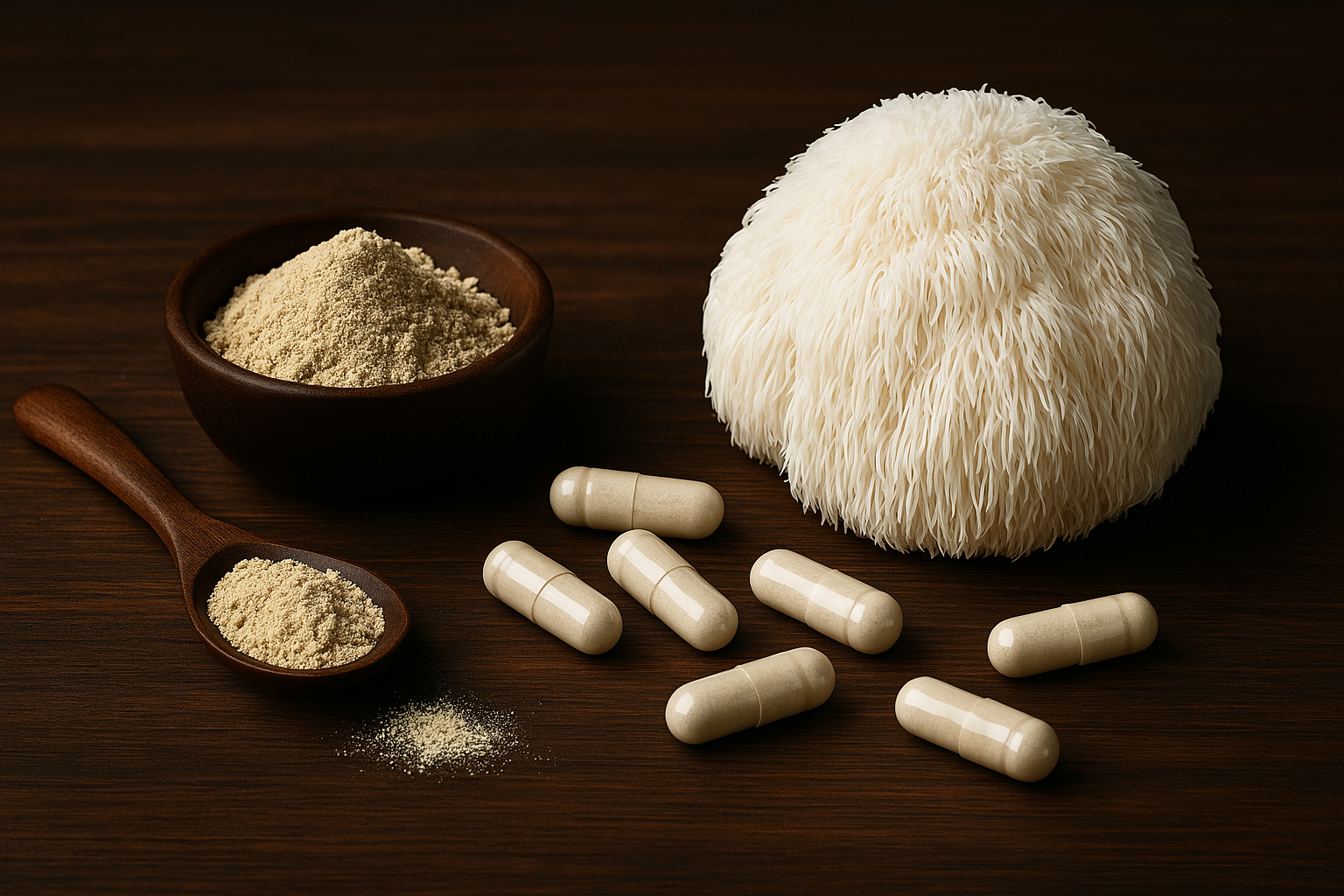As we get older, it’s normal to notice the occasional brain fog, forgetfulness, or just not feeling as sharp as we used to. With brain health becoming a bigger concern for many over 60s, natural options like Lion’s Mane are getting a lot of attention.
What Is Lion’s Mane Mushroom?
Lion’s Mane is a strange-looking mushroom that’s been used in traditional medicine for centuries. But now it’s going mainstream thanks to studies showing it might actually support memory, focus, and even mood. Here’s what you need to know before you decide whether to give it a go.
Lion’s Mane (Hericium erinaceus) is a white, shaggy mushroom that grows on trees and sort of looks like a lion’s mane—hence the name. It’s been used in traditional Chinese and Japanese medicine to support digestion and general health. But what’s made it popular in recent years is its possible impact on the brain and nervous system.
It contains unique compounds called hericenones and erinacines. These are thought to help stimulate nerve growth factor (NGF), which plays a key role in the growth and repair of nerve cells—including those in your brain.
Science-Backed Benefits of Lion’s Mane
- Memory and Cognitive Support
Several small studies have suggested that Lion’s Mane may improve memory and support overall brain function—especially in older adults. Some people also use vitamin B12 for memory and mental clarity — especially as they get older.- One 2009 study found that adults with mild cognitive impairment who took Lion’s Mane for 16 weeks showed significantly improved scores on a cognitive function scale compared to those who took a placebo. When they stopped taking it, the benefits faded, suggesting it needs to be taken consistently.
- Mood and Anxiety
Some early research and user reports suggest Lion’s Mane may help reduce mild symptoms of depression and anxiety. It’s thought to support the hippocampus, the part of the brain that regulates emotion and memory. - Nerve Regeneration
Animal studies have shown that Lion’s Mane can stimulate the growth and repair of nerve tissue. While more human research is needed, this has led to excitement about its potential role in age-related cognitive decline and even nerve injuries.
How to Take It You can take Lion’s Mane in several forms:
- Capsules or tablets – The most convenient, especially for consistent dosing.
- Powder – Often mixed into smoothies, coffee, or tea.
- Tea – A gentle option, though often less potent than extracts.
Look for a dual extract (alcohol + hot water) for the most effective supplement. The typical dose ranges from 500mg to 3000mg per day, depending on the strength and form.
When to take it? Most people take it in the morning or early afternoon. Taking it too late in the day may cause vivid dreams in some people.
Side Effects and Cautions Lion’s Mane is considered safe for most people and is generally well-tolerated.
However:
- Mild digestive upset can occur in some.
- Always check with your doctor if you’re taking medication, especially blood thinners or immune-related drugs.
- Not recommended during pregnancy or breastfeeding due to a lack of safety research.
Best Lion’s Mane Supplements in the UK If you’re looking to try it, quality matters. Here are a few highly rated options available in the UK:
- Dirtea Lion’s Mane Powder – Great for mixing into coffee or tea, from a UK-based company.
- Hifas da Terra Lion’s Mane Capsules – A strong dual-extract in capsule form.
- Time Health Lion’s Mane – A popular UK brand offering good value and organic certification.
Look for products that are:
- Certified organic
- Free from fillers
- Ideally dual-extracted for maximum benefit
Final Thoughts
Lion’s Mane won’t turn you into a genius overnight, but it does have some solid science behind it for supporting brain health—especially if you’re over 60 and starting to feel the effects of time.
If you’re looking for a natural way to support memory, focus, and mental clarity, this mushroom might be worth adding to your supplement routine. Just go for a high-quality brand, stick with it consistently, and talk to your doctor if you’re unsure.
🧠 And remember: sleep, movement, hydration, and managing stress still do most of the heavy lifting—Lion’s Mane is just one more tool in your kit.
Cognitive improvement study (2009):
👉 https://pubmed.ncbi.nlm.nih.gov/19789249/
NGF stimulation by Lion’s Mane:
👉 https://pubmed.ncbi.nlm.nih.gov/24266378/
Vitamin B12 article – from the section on memory and energy
“B12 also plays a big role in memory and focus — read more about it here”
Magnesium article – under the mood/stress section
“Magnesium is another natural option for calming the nervous system — find out how it helps”

👉 Like this article? Share it on Facebook 💬
➡️ Join our private Facebook group here! [Join Now]

Leave a Reply